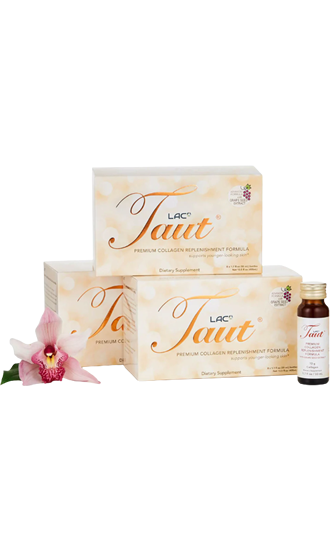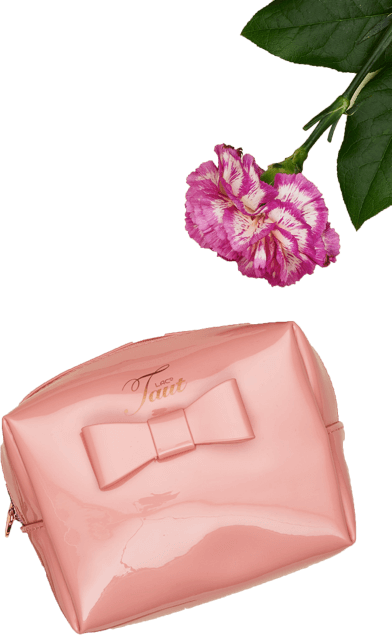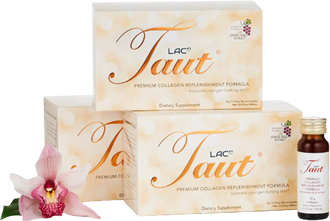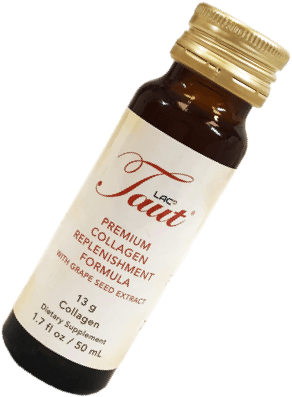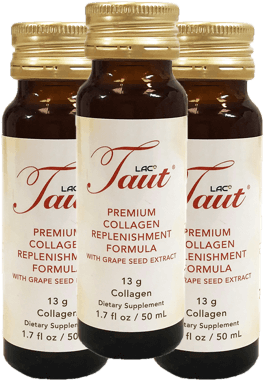The Collagen Lifestyle: Daily Habits That Boost Your Skin's Glow Naturally

You've probably heard that maintaining a glowing complexion is a simple feat, yet the key often lies in your daily habits. The collagen lifestyle isn't just about expensive creams—it's about incorporating specific routines that support your skin naturally. From the foods you eat to how you manage stress, every choice plays a role in collagen production. Curious about how these everyday habits can transform your skin's glow? By understanding how interconnected elements like diet and exercise influence collagen, you'll be better equipped to enhance your skin's natural radiance. Let's explore how lifestyle truly impacts your skin.
Key Takeaways
- Consume superfoods like yogurt and colorful vegetables to naturally promote collagen synthesis and enhance skin glow.
- Incorporate DIY collagen boosting masks with ingredients such as avocado and honey for a radiant complexion.
- Stay hydrated to support skin elasticity and maintain cellular health for a glowing appearance.
- Engage in regular exercise to improve blood circulation and nourish skin cells for a healthy glow.
- Practice stress management activities, like meditation, to nurture a vibrant and radiant complexion naturally.
Understanding Collagen and Skin

Although many people associate youthful skin with beauty products, it's actually the work of collagen, the body's most abundant protein, that maintains skin elasticity and firmness. As you navigate the aging process, collagen levels naturally decline, often beginning in your mid-20s. This reduction inevitably affects skin elasticity, leading to wrinkles and sagging. Don't worry, understanding collagen synthesis can empower you to influence this process effectively.
Collagen benefits extend beyond just cosmetic appeal; this protein is essential to your skin's structure and function. It supports skin firmness, allowing you to maintain a youthful appearance. Collagen synthesis involves fibroblasts—specialized skin cells—creating new collagen. However, factors like UV exposure and stress can accelerate collagen degradation, compromising skin health.
To maintain and enhance skin firmness, you need to focus on preserving collagen levels. Incorporating foods rich in vitamin C and amino acids in your diet can naturally boost collagen production, counteracting aging signs.
Lifestyle changes, such as sun protection and stress management, further support collagen synthesis. By understanding and supporting your body's collagen processes, you can enjoy not only enhanced skin health but also a greater sense of freedom regarding your appearance while protecting your skin from environmental stressors.
Boosting Collagen Naturally
Elevating your collagen levels naturally starts with integrating specific dietary and lifestyle practices that clinical evidence supports.
Prioritize superfoods for collagen, incorporating yogurt, colorful vegetables, leafy greens, citrus fruits, and nuts into your daily meals. These Collagen-rich foods for skin health are rich in essential nutrients, promoting effective collagen synthesis. As you adopt these superfoods, consider using DIY collagen boosting masks made from natural ingredients like avocado, honey, and yogurt, which can enhance your skin's glow.
Hydration and collagen go hand in hand. Drinking enough water aids in maintaining skin elasticity and supports cellular health. Coupled with adequate hydration, embracing lifestyle changes for collagen, such as exercising regularly and protecting your skin from excessive sun exposure, becomes essential. Here are some of the best moisturizers for hydrated skin.
Exercise, particularly strength training, enhances blood circulation, delivering crucial nutrients to skin cells.
Beyond diet and exercise, stress management for skin is essential. High stress elevates cortisol levels, detrimentally affecting collagen. Engage in meditation, yoga, or journaling to alleviate stress, indirectly promoting a radiant complexion. By incorporating these evidence-based strategies, you'll find that freedom in your skincare regimen not only enhances your appearance but also supports overall wellness.
Supplements and Products

In addition to dietary and lifestyle changes, supplements and products can provide a robust pathway to enhancing collagen production and skin health. Collagen supplements like BioCell Collagen, Verisol Bioactive Protein Peptides, and Taut Collagen are supported by clinical studies, demonstrating their efficacy in boosting collagen levels and improving skin elasticity. When choosing the best collagen supplements you're aiming to fill dietary gaps that might hinder optimal skin radiance, high-quality collagen supplements can be a valuable addition to your regimen.
Choosing the right skincare products also plays an essential role. Incorporate those containing retinol, vitamin C, and peptides, as these ingredients have been shown to enhance collagen stimulation and promote skin rejuvenation. Integrating these products into your routine empowers you with the freedom to take control of your skin's appearance.
It's important to approach new supplements with personalized guidance. Consulting a healthcare provider ensures that your choices are tailored to your specific needs, minimizing risks and maximizing benefits. With well-considered supplementation and targeted skincare, you'll find an evidence-based path to maintaining vibrant, youthful skin. Focus on quality products backed by human studies to effectively support your skin health journey.
Debunking Collagen Myths
People often grapple with the myths surrounding collagen, leading to misguided skincare choices. One prevalent collagen misconception is that supplements alone are the answer to skin health. While collagen supplements can be beneficial, they're not the be-all and end-all. Your focus should also be on incorporating dietary collagen sources like bone broth and fish skin, which provide the foundation for natural collagen synthesis.
The topical treatments debate further complicates matters. Some claim these treatments boost collagen levels directly, but evidence remains inconclusive. It's important to understand that factors like hydration, sun protection, and a complete skincare routine also influence your skin's appearance.
Lifestyle factors play a significant role in skin health beyond just collagen. Smoking, excessive alcohol, and poor diet accelerate collagen degradation, while stress management and regular exercise bolster its production. Therefore, debunking skincare myths involves recognizing the holistic nature of skin health.
Setting Realistic Expectations

Though misconceptions about collagen pervade skincare discussions, adopting a well-rounded approach no longer remains elusive. It's essential to set realistic expectations concerning collagen's role in enhancing skin health. Recognize that while collagen production is slow and dependent on genetic factors, lifestyle habits can profoundly influence outcomes. Skin improvement involves more than just quick fixes; it's about understanding the natural aging process and adjusting your skincare routine accordingly.
Consistency in collagen-boosting strategies—such as incorporating nutrient-rich diets, effective skincare products, and healthy lifestyle habits—will provide gradual yet significant improvements in skin texture and elasticity. Expecting immediate results overlooks the physiological complexities of collagen synthesis. Instead, focus on sustainable changes that accommodate your unique genetic makeup.
Embrace habits such as balanced nutrition, regular hydration, sun protection, and sufficient sleep as foundations for holistic skin health.
Understand that integrating multiple strategies into your skincare routine can maximize results over time. Patience and consistency are key to witnessing tangible improvements, typically observable in 4-12 weeks. This informed approach not only enhances your skin's glow but supports overall wellness, granting you the freedom to savor your beauty journey with confidence.
Frequently Asked Questions
What Drink Is High in Collagen?
Choose from collagen smoothies, homemade bone broth, and collagen-infused tea. Fresh fruit juices and collagen-rich water also offer high collagen content. Each option supports skin health by providing essential nutrients in a convenient, freedom-enhancing beverage format.
What Foods Are High in Collagen?
Incorporate collagen boosting foods into your collagen rich diet by focusing on natural collagen sources. Bone broth, chicken skin, and fish skin improve skin collagen benefits and enhance skin elasticity, supporting your freedom from aging concerns.
How Do I Activate Collagen in My Face?
To activate collagen in your face, use facial massage for increased circulation, adopt an antioxidant-rich diet, explore microneedling benefits, apply hyaluronic acid, and implement stress management techniques. These methods support effective collagen synthesis and skin rejuvenation.
What Stimulates Collagen the Most?
To boost collagen, integrate natural remedies like antioxidant-rich foods and facial massages. Prioritize sun protection and employ effective hydration techniques to further stimulate production. Clinical studies confirm these strategies support collagen synthesis for enhanced skin resilience and freedom.
Conclusion
By integrating these evidence-based habits into your routine, you're actively supporting your skin's collagen levels. From consuming superfoods to maintaining hydration, you're naturally enhancing elasticity and radiance. Regular exercise and stress management further boost collagen production, contributing to a healthy complexion. While supplements can assist, they should complement, not replace, these practices. Set realistic expectations; skin improvements take time. Embrace this collagen lifestyle consistently to achieve and maintain a naturally glowing, healthier skin over the long term.

